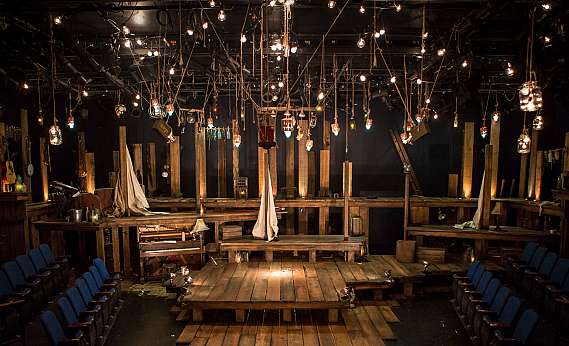A year ago, as Michael Halberstam and I talked about possible plays for me to
direct, Shakespeare’s AS YOU LIKE IT came up. I have acted in or directed a
lot of Shakespeare, but never that one. It was a play I admired but didn’t love.
It has extraordinary characters, fascinating relationships and beautiful scenes,
but I never understood what held it together. It seemed to have no narrative
force. Scholars say, “Oh, well, it’s a pastoral.” What the hell does that mean?
Does one put in the program, “You see, it’s a pastoral.”
I sat down and read the play and realized anew how compelling it is. I started
reading about the play and I hit upon a piece of information that made the light
bulb go on for me. I read about a 1957 production in Great Britain that
followed on the heels of the Hungarian uprising in which the exiles in the Forest
of Arden reminded the audience of the Hungarian refugees that were pouring
into England. How easy it is to forget, in a play with so much love and laughter,
that these people are displaced persons. They cannot go home. They would
be killed. They must create a new world for themselves that will require all their
courage and imagination. What a delightfully dangerous context for a comedy.
Every play is about the people who come to see it. It must speak to us in
ways that relate to our experience. However, I always find it useful to try to
imagine how that first audience at the first performance received it.
Elizabeth I is on the throne – a brilliant woman playing a man’s role. It is a
golden age of discovery, with swashbuckling explorers discovering new worlds
everywhere. Elizabeth’s court is smart, witty and glamorous. It is also
murderously dangerous. One is in favor one minute and in the Tower the
next. No one can be trusted. It is the English renaissance, bursting with
miraculous possibilities, that is terrorized by uncertainty, religious zealotry,
unbridled ambition and the randomness of hate.
But don’t be scared. AS YOU LIKE IT is Shakespeare’s hope that everything will
turn out just fine. The folks who end up in the Forest of Arden are a mixed bag
of individuals. The argue, they misunderstand each other, they flirt, they joke,
they sing. But they do create a community – a community of individuals – and a
safe harbor for the young, the old and the gender confused.
I have one personal story. I officiated at the wedding of Tracy Arnold and
Marcus Truschinski, our Rosalind and Orlando. (I have no idea why they
thought I would be appropriate.) In the excitement of the ceremony, I forgot to
do the part that begins, “Do you, Tracy Arnold, take this man, etc?”
Now, eight times a week, Tracy’s best friend, Carey Cannon, can perform the
part of the ceremony I forgot.


No comments yet.